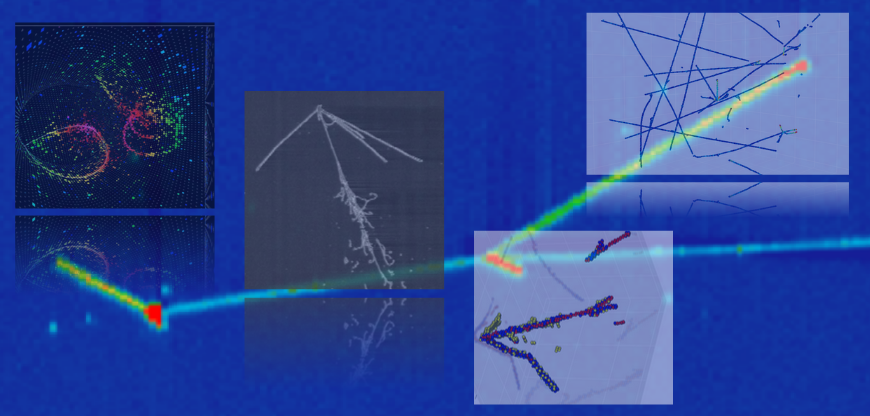Speaker
Description
Recent leaps in Computer Vision (CV), made possible by Machine Learning (ML), have motivated a new approach to the analysis of particle imaging detector data. Unlike previous efforts which tackled isolated CV tasks, this talk introduces an end-to-end, ML-based data reconstruction chain for Liquid Argon Time Projection Chambers (LArTPCs), the state-of-the-art in precision imaging at the intensity frontier of neutrino physics. The chain is a multi-task network cascade which combines voxel-level feature extraction using Sparse Convolutional Neural Networks and particle superstructure formation using Graph Neural Networks. Each individual algorithm incorporates physics-informed inductive biases, while their collective hierarchy enforces a causal relashionship between them. The output is a comprehensive description of an event that may be used for high-level physics inference. The chain is end-to-end optimizable, eliminating the need for time-intensive manual software adjustments. The short baseline neutrino (SBN) program aims to clarify neutrino flux anomalies observed in previous experiments by leveraging two LArTPCs (ICARUS and SBND) placed at different distances relative to the booster neutrino beam (BNB) target. This presentation highlights the progress made in leveraging the ML-based reconstruction chain to achieve the SBN physics goals which will pave the way for the future success of the Deep Underground Neutrino Experiment (DUNE).

